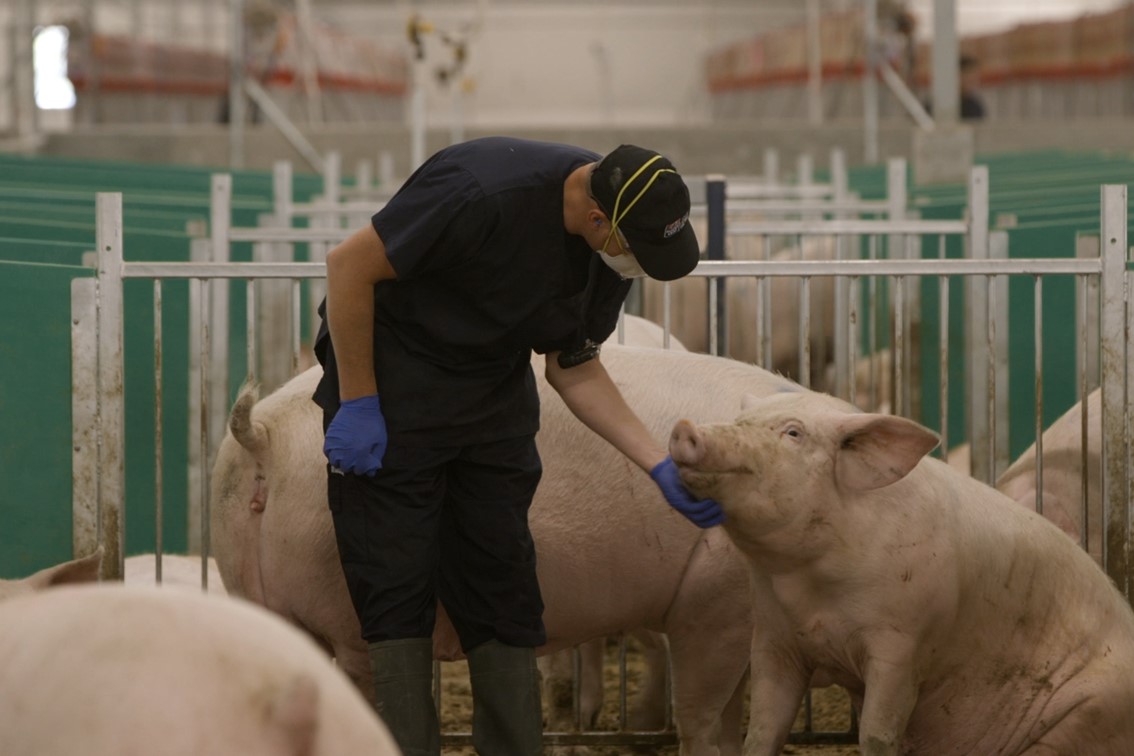Maple Leaf Foods climbs in BBFAW rankings
Canada’s largest food processor Maple Leaf Foods has won recognition for being one of the few global companies to move up the rankings in the latest annual Business Benchmark on Farm Animal Welfare (BBFAW) report.
The study, this year’s edition is the 10th, is the leading global measure of policy commitment, performance, and disclosure on farm animal welfare in food companies. This year’s report afforded greater focus on companies’ Performance Reporting and Impact by increasing the weighting of the section from 35-45% of the total available score, ranking companies A-F on the 10 questions.
Maple Leaf Foods climbes to tier 2
As a result, many of the 150 global food companies lost ground or held on to their respective tier rating but Maple Leaf Foods climbed 1 tier to the second highest tier (tier 2). The success is largely due to the publication of its ‘Maple Leaf Animal Care Performance Report’ in which the company reports on several animal welfare parameters. It also reports on specific animal welfare objectives and its progress towards these in its ‘Better Care Goals and Performance’ document.
We are proud of our recent, full conversion of all our sow barns to our Advanced Open Sow Housing system
Kathleen Long, Maple Leaf Foods Animal Care vice president
Advanced Open Sow Housing system
Kathleen Long, Maple Leaf Foods Animal Care vice president, said: “Maple Leaf Foods is value-driven and deeply committed to providing the highest level of welfare to animals in our care. Our customers expect it and our animals deserve it. We are proud of our recent, full conversion of all our sow barns to our Advanced Open Sow Housing system that enables our sows to chose when they eat, socialise, play and rest.”

Cargill remains in tier 2
Cargill said it was pleased to have remained in tier 2 for the 6th year running, saying only 16 of the 150 rated firms were in tiers 1 or 2. Nick Wolfenden, Cargill’s global sustainable animal welfare director, said: “We are proud of our continued high ranking in this year’s BBFAW report, as well as of the work we are doing every day to advance animal welfare within our operations, with our customers, along our supply chains and across the industry.”
Barilla and tail docking
The report also highlighted the ongoing work of Italian producer Barilla, which managed to stay in tier 2. Barilla reported its performance on a range of farm animal welfare indicators (for example pigs free from sow stalls and tail docking) and is working with its Italian pork suppliers, the University of Bologna and Compassion in World Farming to eliminate the practice of tail docking of pigs.
Companies dropping a tier
Several other producers/manufacturers dropped a tier this year, including meat producers Cranswick (Tier 1 to 2). Danish Crown AmbA (Tier 2 to 3) and Kraft Heinz (Tier 3 to 4). In many cases, this fall in tier ranking was due to a lack of performance data for relevant animal species and geographies.
Highest reported topic: animals free from close confinement
Reporting on the proportion of animals free from close confinement (across laying hens, broiler chickens, pigs and dairy cattle) remains the highest reported topic, with 100 companies (67%) reporting at least some data (65% in 2020). However, the majority of performance reporting on this topic remains limited to specified countries, species or product lines, with only 7 companies (5%) providing universal data.
Other findings were that:
- 49 companies (33%) report some data on the proportion of animals transported in 8 hours or less (29% in 2020), with only 8 companies (5%) providing universal data;
- 42 companies (28%) report welfare outcome measures for specific species (e.g. lameness rates in pigs). Given the importance of welfare outcome measures for evaluating the performance of farm animal welfare systems and practices, this issue remains significantly under-reported with 108 companies reporting no data at all.
- 39 companies (26%) report some data on the proportion of animals provided with species-specific enrichment (22% in 2020), with only four companies (3%) providing universal data.
Nicky Amos, BBFAW executive director and Chronos Sustainability managing director, said considerable investment has been made over the past decade around welfare in pigs, poultry and dairy animals. But progress is slow, particularly around delivering meaningful welfare improvements.
Today, around 80% of the 150 companies assessed by BBFAW have strengthened their governance of farm animal welfare through formal policy commitments, objectives and targets
Nicky Amos, BBFAW executive director and Chronos Sustainability managing director
Governance of farm animal welfare
“The BBFAW set out in 2012 to put farm animal welfare on the business and investor agenda, and to significantly advance corporate management practice and disclosure on the issue. 10 years on, these objectives have been realised. Today, around 80% of the 150 companies assessed by BBFAW have strengthened their governance of farm animal welfare through formal policy commitments, objectives and targets.
“While this provides a strong foundation for action, companies need to demonstrate that their investments in farm animal welfare are delivering positive welfare impacts for animals on the ground.”
Policy commitments
Philip Lymberry, Compassion in World Farming chief executive officer, added that it was disappointing policy commitments were not delivering meaningful improvements for animals as quickly as they should: “Our focus now must be on ensuring that companies across the globe really do drive forward and deliver substantial and measurable welfare improvements for farm animals.This means making significant progress in their supply chains; for example, moving away from keeping animals in confinement systems such as cages and crates, and towards more humane and sustainable husbandry practices, to help create a food system that works for animals, people and the planet.”
More information on the programme can be found at www.bbfaw.com











